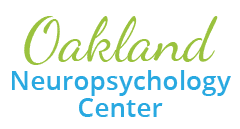
Neuropsychological Testing
A neuropsychological evaluation is a testing method through which a neuropsychologist can acquire data about a person’s cognitive, academic, motor, behavioral, language, memory and executive functioning. It usually includes a comprehensive clinical interview that covers developmental, academic, and medical issues. Neuropsychological tests evaluate functioning in a number of areas including intelligence, memory, attention, language, spatial perception, social cognition, and executive functioning (such as abstraction, problem solving, mental flexibility). It also often includes looking at an individual’s emotions and personality style, and how these may be impacting on thinking skills. Testing involves paper and pencil tasks, hands-on activities, as well as some computerized tasks in certain cases. Parents may be asked to fill out questionnaires pertaining to developmental and behavioral issues. Results are then reviewed with parents in a separate meeting. This type of evaluation provides a comprehensive picture about a person’s cognitive strengths and weaknesses, and the impact it may have on daily functioning. Most importantly, it also provides a wealth of information to help guide treatment options, including which types of services and/or accommodations may best be suited to help a student meet their full academic potential. The time required for testing depends on the person’s age and reason for evaluation, but typically lasts between 4 to 6 hours. For more information on neuropsychological testing, please visit the following website:
http://www.div40.org/pdf/PedNeuropscyhBroch3.pdf.


